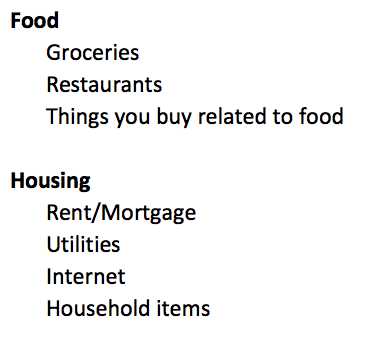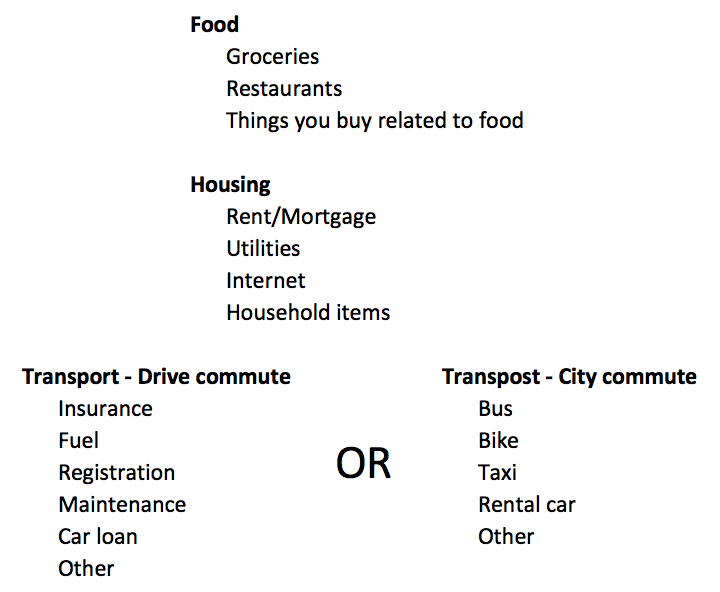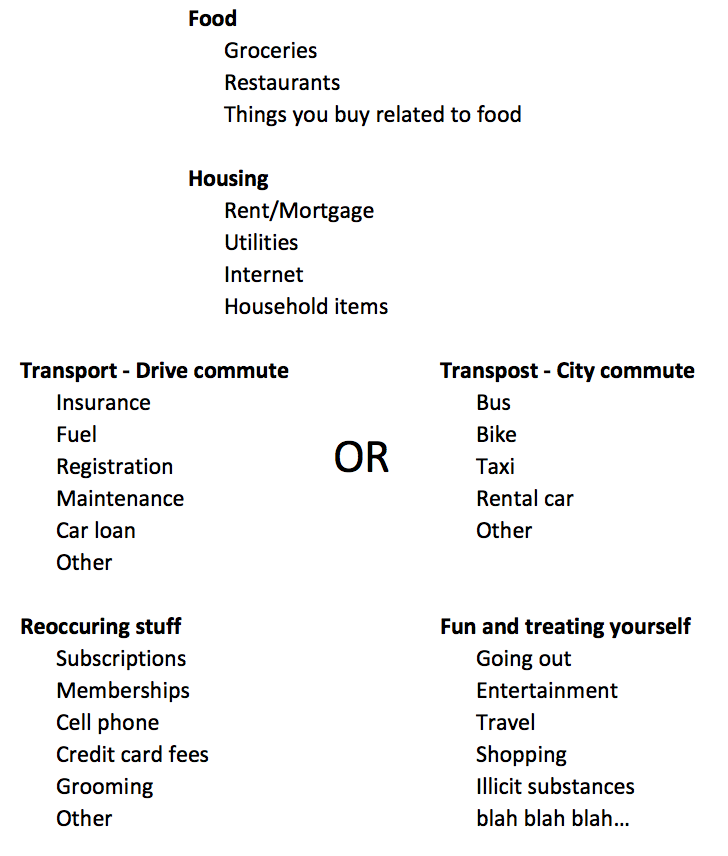Make yourself a budget
If you've ever spent time in the wilderness, you will be intimately familiar with the three basic requirements for life.
Food.
Water.
Shelter.
Beyond that, whatever your heart desires.
Food is pretty easy, as long as you bring enough of it with you. If you bring perishables like meat, you'll have to keep it cold and keep it out of reach of ants. The first time I went backpacking, my meat went sour and covered by ants. Luckily, I had brought a bunch of backup ramen and sardine tins to hold me over for the rest of the trip.
Enough water for a couple of days is too heavy to carry along. Instead, what you bring along with you is a water filter or Iodine tablets so that you can get water from a stream or pond. What surprised me was how much water I felt like I needed to drink during the day. Getting water was a long process. We'd sit by the pond for hours a day pushing water through a filter to get it to drinking condition. Whenever I had the chance to splurge and drink till my insides were saturated with water, I would. The water tasted great.
Water is the lifeblood of the human body. As an aside, I find it surprising that people choose to fuck around by drinking soda, coffee, flouride, and all kinds of other shit.
Shelter was easy. Also heavy. Depending on the weather, the only shelter you might need is a light sleeping bag and hammock. Sleeping outdoors is something different. Dead silence and complete dark. I'm not used to either of those things normally, so when it does happen it's an incredibly satisfying feeling.
Once you have those three things taken care of, you have free time to spend on other things that give you enjoyment and your life meaning, such as fire, good conversation, illicit substances, jokes, and sharing stories.
It's surprising to me that humanity doesn't operate on a level similar to the way a small group would live in the wilderness. Once basic human needs are taken care of, anything is technically possible.
Yet, the path we've chosen to go down is to limit the availability of these basic needs so that only those that can afford them can reliably get them.
Nonetheless, this fact helps us develop the part of our budget that will likely be our largest.
 Easy and strong to start with the basics.
Easy and strong to start with the basics.
I like to lump things that I buy related to food in the food category, such as food preparation items and vitamins.
Now we can move on to more complicated matters, such as transport.
Transport costs can vary widely based on what you need for your specific situation. The largest portion of your spending in this category will likely have to do with how you get to work.
When I was commuting to work in my bank-powered diesel sipper, I was spending roughly $6k per year just to get from place to place. Now, since moving my job closer to home so that I can walk or bike, I've spent just over $1k in total.
I'll prepare two samples that you can adapt for yourself.
 One of these things costs more than the other.
One of these things costs more than the other.
From there, it becomes a bit harder to keep making a budget for you because I'm not quite sure what you spend money on. I'd hazard a guess that the above covers more than half of what your money goes to. I can continue to guess a bit more...
 Some important categories here.
Some important categories here.
... but I think you'd have a lot more luck here than I would.
If you get stuck, just throw a catch-all category in there. The important part is that you start tracking your spending so that after a few cycles we can fill in the missing number from the last step.
One thing you should not do is spend differently all of a sudden because you're budgeting. You want to get a true understanding of what your cash flow looks like, so you don't want to screw up the numbers by some unconscious bias to make the numbers look better.
Don't change your life to please the budget, change your budget to please your life.
I just finished making by budget for 2018, and I'm really excited about the budget categories I've come up with for this year. I spent a whole bunch of time reviewing my 2017 budget and thinking about out to make it a bit less boring and more than just a record-keeping tool.
One thing that I've struggled with in the past is deciding what to do when presented with an opportunity.
For example, if a friend asks me if I want to go do a thing, I want to be able to evaluate whether I truly want to do said thing. If I have a running record of things that I did that I didn't really end up enjoying, I'll be able to make a more informed decision next time.
There are also things that I buy that I think are important in the moment, but end up not being that important when they finally arrive. I'm curious to know what these things are.
I don't want to actively have to think very hard about every opportunity that comes along. I want to have an innate sense of what I enjoy doing so that I can have an easier time deciding what to do, and I think one way of developing that for myself is to keep a personal record.
FOMO is a real thing.
I'll share my budget with you in the next step (spoiler: it looks pretty similar to one I made up above).
What you should do for this step
Write out budget categories for yourself. Start with the basics - the things you know you need - and add on peripherals.
Don't worry about getting ALL the categories right. You'll be able to update your categories easily later on. For now, just add a 'Stuff I Forgot to Budget For' category as a catch-all.
If you are ready to bring your budget to life and put it to work for you, move on to the next step.